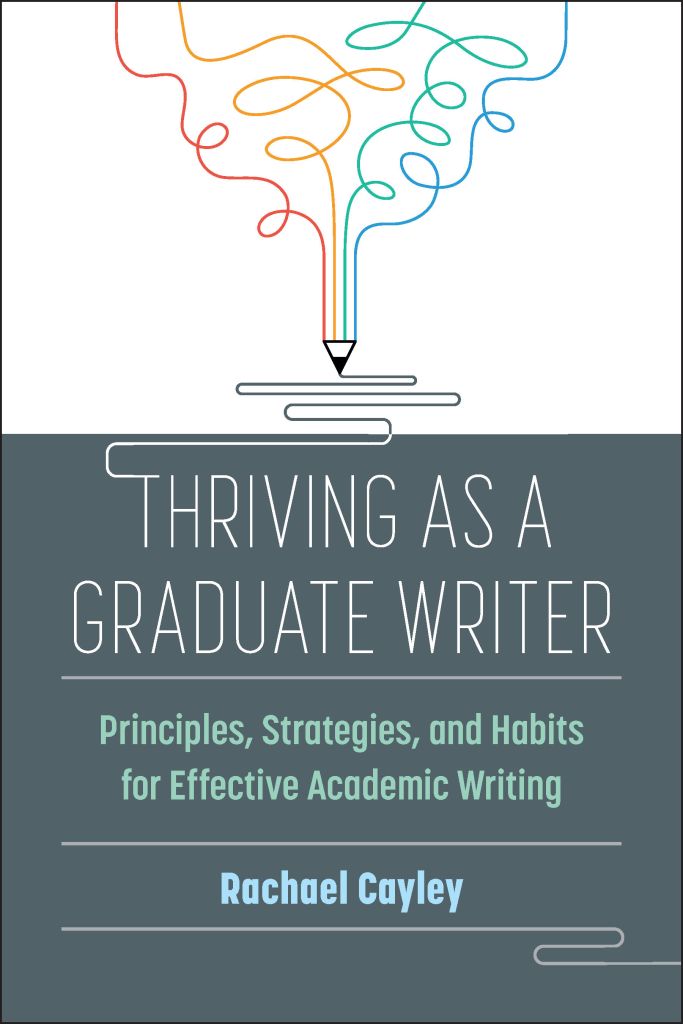If you’re a regular reader of this blog, you will know that I’ve spent the last few years working on a book about graduate writing. That process is now drawing to a close: Thriving as a Graduate Writer will be published in June! Between now and then, I’m going to use this space to share brief excerpts. In addition to my discussion of principles, strategies, and habits for effective academic writing, the book has short ‘asides’ that allowed me to engage with topics outside that main narrative. Over the next four months, I’ll share my favourites of those asides. As always, I’d love to hear what you think!

Say Less or Say More
Here’s a common scenario in a writing consultation:
Me: I think this word/phrase/sentence could perhaps be removed.
Writer: Absolutely not, that idea is crucial.
Me: Okay … but as it’s presented here, it doesn’t seem important.
Writer: How could it be unimportant? This idea is essential to my whole project!
Me: But you haven’t taken the time to show that importance. If the reader does need to know, you’ll need to say more.
This principle–say less or say more–can be helpful as you decide the level of detail required in your writing. When you confront a sentence that you’re unsure of, first ask yourself if all the detail is necessary. If you decide that everything must stay, then ask yourself a second question: Have you said enough about it? Given all the length restrictions at play in academic writing, writers often try to cram in too much without having the space to do it all justice. Because you yourself know that a detail is significant, you may decide to include it despite the fact that you can’t squeeze in an explanation of that significance. As a writer, you might feel better if you’ve included at least a mention of everything, but your reader might feel worse. Say less or say more.
Thriving as a Graduate Writer will be available in early June from the University of Michigan Press. To pre-order your copy, visit the book page. Order online and save 30% with discount code UMS23!


